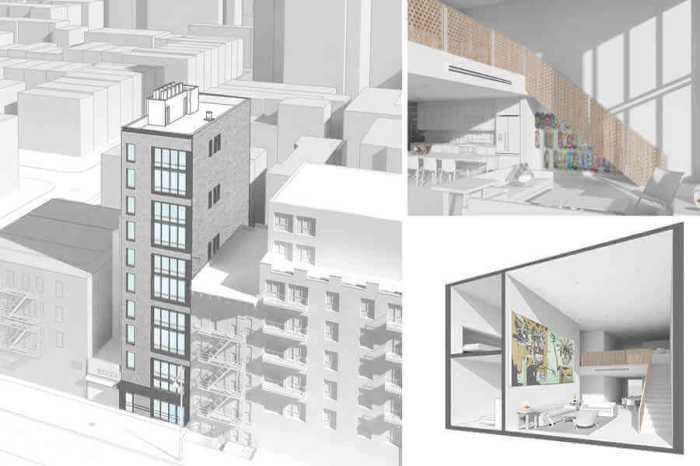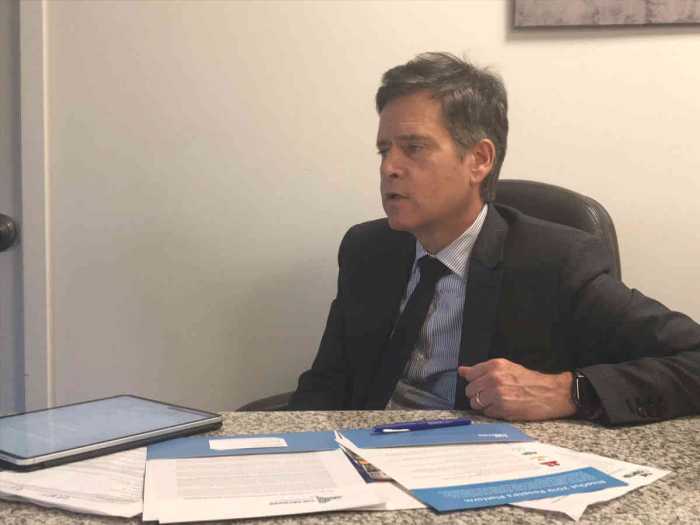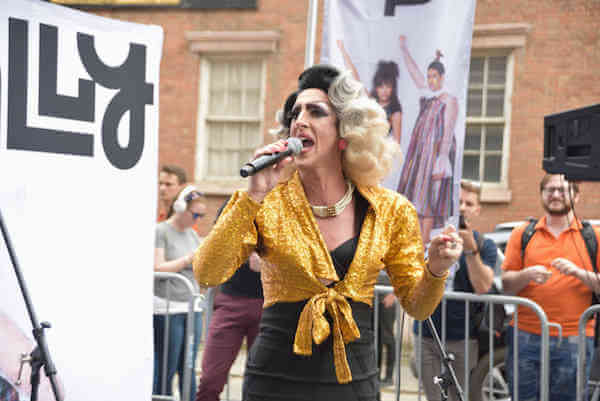A class action lawsuit filed December 30 in federal court aims to compel the City of New York to provide youth shelter and services to any homeless youth aged 16 to 20 who seeks such assistance. The complaint, filed on behalf of nine youths who have experienced extended homelessness in the city, cites evidence that New York provides only 253 youth shelter beds for a population of homeless youth that numbers 3,800 on an average night.
Those left without a bed, the complaint states, resort to riding the subway and exchanging sex for money, food, and a place to stay. One-third to one-half of the homeless youth, the suit alleges, engage in sex work, some of them victims of sex trafficking. Estimates for those who are HIV-positive range from 10 percent to 30 percent, according to the complaint.
The suit, filed by the Legal Aid Society and attorneys from Patterson Belknap Webb & Tyler, says the city’s inadequate response to the youth homelessness crisis violates the state Runaway and Homeless Youth Act, which requires that every homeless youth be provided youth shelter and other services and bars youth from being discharged back into the streets “under any circumstance.” According to the complaint, however, the number of city youth beds has actually declined from 370 in 2009 to 253 today, hundreds of youths are turned away from shelters nightly, and the city, when discharging youth from shelters after 30 to 60 days, has no idea where 45 percent of them are next headed for housing.
New York City, complaint alleges, violates state law, US Constitution
Because New York State courts have found that homeless individuals have a right to shelter, the city’s failure, the suit maintains, also violates the US Constitution’s guarantee of equal protection under the law. The lawsuit also makes claims under the federal Americans With Disabilities Act, citing statistics that up to 90 percent of homeless youth in New York suffer from some degree of emotional or behavioral disorder. Yet, the suit alleges, the city does not pay for mental health evaluations of homeless youth, leaving them responsible for demonstrating their needs.
The plaintiffs, identified only with initials, are nine homeless youths, aged 17-20, seven of whom identify as gay, lesbian, bisexual, transgender, or queer. Studies have shown that as many as 40 percent of homeless youth are LGBT, many of them thrown out of their homes by parents unwilling to support them in their sexual or gender identity. The experiences of the nine plaintiffs included being thrown out of their homes, victimized by sex trafficking, rejected by youth shelters, and abused and harassed in family and adult shelters.
The lawsuit contends that one significant risk youth face is that 18- to 20-year-olds can be referred to adult shelters, where they often experience dangerous conditions. The complaint sites former City Councilman Lewis Fidler, who chaired the Youth Services Committee, saying that many homeless youth “would rather sleep on the subway than go into the adult shelter system.”
The risks young homeless people face in adult shelters is one that Carl Siciliano, executive director of the Ali Forney Center (AFC), which provides housing and services for homeless queer youth, is particularly concerned about. In AFC’s experience, waiting lists for its housing serving those under 21 averages 32 per night, while the figure for those 21 to 24 is 162. The older youths, he said, “overwhelmingly” support themselves through sex work. When homeless LGBT youth enter the adult shelter system, Siciliano said, they are especially vulnerable to harassment, violence, and rape. Despite the recommendation from a commission appointed by former Mayor Michael Bloomberg that Runaway and Homeless Youth services be extended up to the age of 24, that older group of homeless youth remains largely unserved.
Though he supports the aims of the Legal Aid lawsuit, Siciliano worries that it could divert the attention of government officials away from the problems facing homeless youth older than 20.
The timing of the lawsuit is significant, coming just as a new mayor — who publicly committed to incrementally increasing funding for homeless youth beds each year until the demand is met — takes office. Whether Bill de Blasio’s stated intention of tackling the problem of homeless youth shelter provides an opening for settling the lawsuit remains unclear. City Hall provided no reaction to the suit, and a City Law Department spokesperson said only, “We have recieved the complaint and will review it thoroughly.” The Legal Aid Society did not comment on the prospects for settlement, nor did it respond to the concerns raised by Siciliano.




































